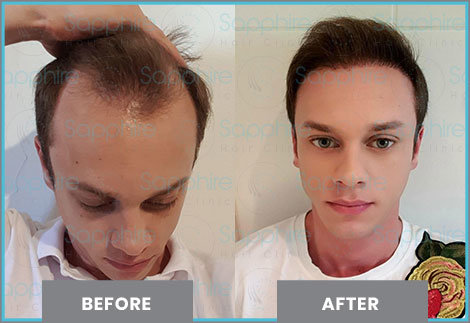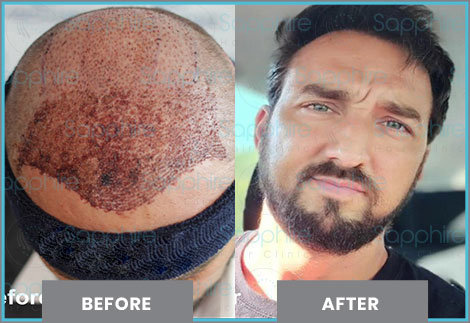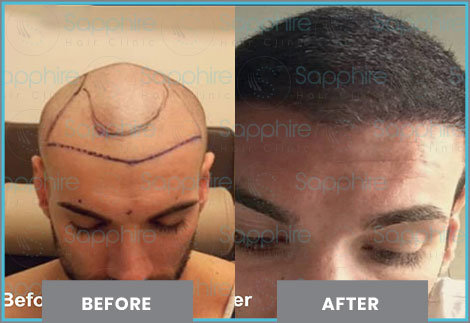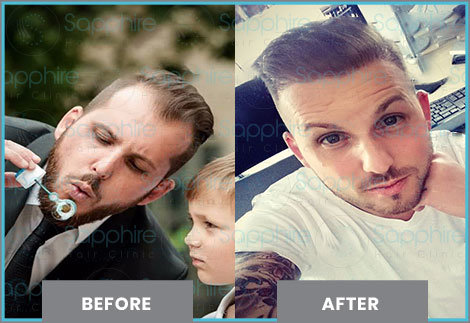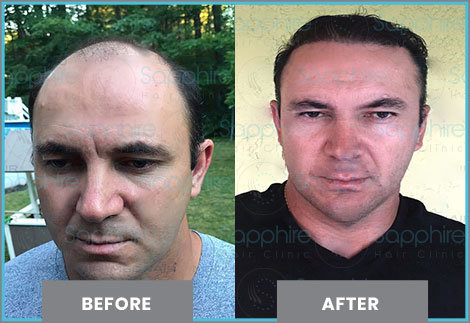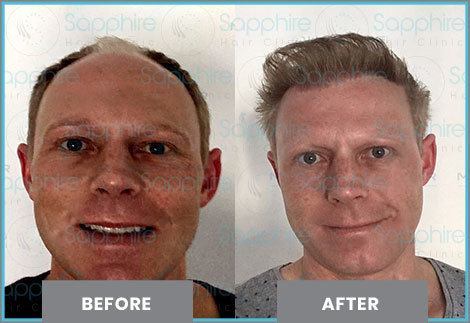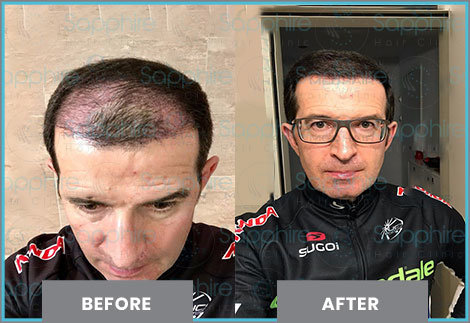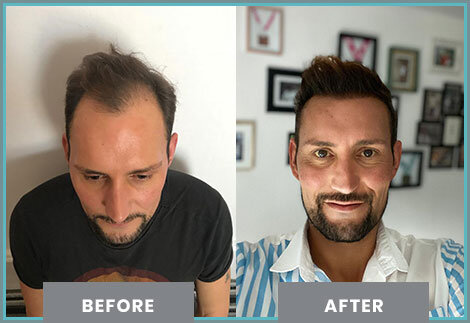HIV Hair Transplant Turkey
HIV Hair Transplant turkey In our clinic, hair transplantation in HIV positive patients is carried out in a sterile and appropriate environment together with our experienced doctor. The method we apply is the FUE method. This technique is the process of removing hair follicles from the scalp, in form of individual, bilateral, triple follicular units, without any incisions and sutures with the help of a micromotor, which has special tips of 0.6-1.1 mm diameter. It is the only root extraction method used in hair transplantation. Healthy adult individuals with adequate hair in the area between the two ears, we which we call the donor area, are considered suitable candidates for hair transplantation.
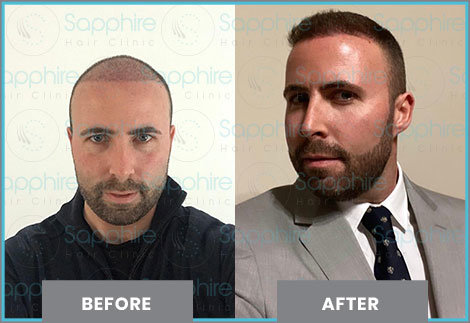
HIV Hair Transplant Istanbul Fue & DHI
The method that is named as FUE Hair Transplant, in other words follicular unit extraction, is a method for hair transplant turkey defined in 2004. First time it was defined, it was performed with a special pen-like instrument as shown in the following figure.
In this method named Punch Biopsy, a pen-like apparatus is placed in skin to the depth of the hair’s root and the follicular unit was removed as a whole. For example, if the patient needs 2000 grafts, this procedure was repeated 2000 times. Even though this method, which costs a lot of time both for the patient and health personnel, was replaced with a motorized system, there are still doctors insisting to use this method.
The only difference of this method known as Fue Motor from other old methods is the fact that the operator doesn’t have to remove the follicular unit manually. Actually the basic principle is the same, but the operator gains significant amount of time with this new method. The apparatus at the tip of the punch biopsy pen is connected to a motor and the speed of the motor can be adjusted to the requested level. The thickness of the tips can be changed and tips at the requested lumen diameter according to the donor area can be inserted. The time it saves is of course not the only advantage of the fue motor. The tissue deepness can be standardized thanks to the motorized method, and this removes the obligation to check the tissue deepness constantly. And again with the Fue Motor, grafts can be removed from closer areas and more grafts can be removed from the same region with the motor. Another advantage of the motor is the lower chance of breaking up grafts with 2-3 or even 4 roots, in other words the higher success in protecting the integrity of the follicular unit.
Figure: FUE Motor and Tips Because of these reasons, Fue Motor enables the hair transplant operation to be performed much more comfortably. Even though the method of removing the roots is different, the phases of opening channel and implanting roots are the same.
Can I have a hair transplant with HIV?
A person with HIV may be eligible for a hair transplant treatment based on a number of variables, such as their general health, the stage of their HIV infection, and their unique situation. To find out if a hair transplant is right for you, it’s crucial to speak with a medical expert who is familiar with both the process and your medical condition.
Here are some important things to think about:
- Health condition: A patient’s eligibility for a surgical operation such as a hair transplant may be impacted by their current health condition, which includes their HIV infection stage, viral load, and CD4 cell count.
- Drugs: The drugs taken to treat HIV may have an effect on the patient’s general health, healing procedures, and possible interactions with anesthetic or post-operative care.
- Infection Control: To reduce the possibility of HIV spreading to medical professionals or other patients, appropriate infection control procedures must be followed during the surgery.
- Surgeon’s Evaluation: To ascertain the patient’s eligibility for the treatment, a board-certified hair transplant surgeon should evaluate the patient’s health and medical background.
- Medication Management: Prior to and during the procedure, make sure you have a strategy in place for how you will take your HIV medications.
- Preoperative Testing: In order to protect patients and medical staff, several clinics may mandate preoperative testing. HIV testing and other medical evaluations may fall under this category.
It’s critical that you and the surgeon have a full discussion about your unique medical condition, medical history, and the procedure’s possible risks and advantages. A personalized evaluation by licensed medical professionals who can offer advice specific to your needs and situation should serve as the foundation for the decision.
To ensure a safe and appropriate plan that is in line with your overall health and well-being, speak with your healthcare professional who specializes in HIV care before considering a hair transplant.
Is HIV test required for hair transplant?
HIV testing is usually not a prerequisite for receiving a hair transplant in many nations and clinics. Though their policies and practices may differ, it is imperative that you speak with the particular clinic or physician where you intend to have the operation.
The choice to test for HIV prior to hair transplantation may be influenced by a number of variables, such as:
- Clinic Policies: In order to protect patients and healthcare professionals, certain clinics may have their own policies and procedures requiring specific medical tests, such as HIV testing.
- Patient History: Whether or not testing is advised may depend on the patient’s health and medical history. Testing may be required of patients who have established risk factors for HIV or other infectious diseases.
- Regional Regulations: Certain surgical operations may be subject to regional regulations or standards that specify which medical tests must be completed before the treatment.
- Infection Control: To safeguard patients and medical personnel, hair transplant clinics are required to uphold stringent infection control protocols. Whether or not preoperative testing is necessary, these precautions should be taken to stop the spread of infectious illnesses.
- It’s crucial to go over all of the preoperative requirements and regulations in detail with the surgeon or clinic. It is important to share your medical history with your healthcare professional if you have any worries regarding HIV or other infectious diseases.
In conclusion, HIV testing may not always be necessary before receiving a hair transplant, although it may be advised in some circumstances or by particular clinics to guarantee everyone’s safety and wellbeing.
Can I get hair transplant if I have HIV?
Hair transplantation is a surgical process; therefore, a patient’s eligibility for this procedure may rely on a number of criteria, such as their overall health, the stage of their HIV infection, and their particular circumstances. Here are some important things to think about:
- Consultation with a Healthcare Professional: People living with HIV should speak with a healthcare provider who is experienced with their particular medical condition before thinking about getting a hair transplant. It’s critical to talk about the procedure’s suitability, any possible hazards, and the patient’s general health.
- Immune Function and Viral Load: It’s crucial to take into account the patient’s total immune system function, CD4 cell count, and viral load. An individual with well-managed HIV and a robust immune system might be a more suitable candidate for surgery. HIV that is uncontrolled or progressed may make difficulties more likely.
- Drugs and Health Status: An individual’s general health and healing processes may be impacted by the drugs used to treat HIV. It’s crucial to talk to the medical staff about any possible conflicts between HIV treatment and anesthesia or post-operative care.
- Strict infection control procedures must be followed throughout the process in order to minimize the possibility of HIV spreading to medical professionals or other patients. To guarantee patient safety, surgeons and clinics should adhere to standard safeguards.
- Personal Evaluation: Since every situation is different, the choice to move forward with a hair transplant should be founded on a personal evaluation of the patient’s requirements, medical background, and present state of health.
In the end, deciding whether to get an HIV-related hair transplant should be discussed with medical experts who can offer advice based on the patient’s specific situation and medical condition. Prioritizing safety, reducing risks, and making sure the patient’s health and wellbeing are not jeopardized during the treatment are all crucial.
Can HIV positive person have hair transplant?
For those who are HIV positive, hair transplant treatments are generally feasible, but there are a number of crucial factors and safety precautions that must be taken into account:
- Health Status: The person’s health is an important consideration. To decide whether they are physically capable of undergoing a surgical operation like a hair transplant, people with HIV should have their general health evaluated by a medical practitioner. It’s crucial to confirm that the person has a healthy immune system and no underlying medical issues that can make the treatment or the healing process more difficult.
- Viral Load and CD4 Count: People with HIV are frequently evaluated for their viral load, which is the quantity of HIV in their blood, and CD4 cell count, which is a sign of a healthy immune system. These elements may affect the body’s capacity to recover and mend following surgery. Before doing a hair transplant, surgeons may want to make sure that the patient’s viral load is under control and that their immune system is generally robust.Medication interactions with drugs taken during and after a hair transplant process are possible with several antiretroviral drugs used to treat HIV. It’s crucial to tell the surgeon and medical staff about all medications being taken, including antiretrovirals.
- Risk of Infection: Due to their weakened immune systems, people with HIV are typically more prone to infections. Infection prevention measures should be followed both during and after the hair transplant operation. Proper cleanliness, sterile procedures, and wound care are crucial.
- Specialist Consultation: People with HIV who are thinking about getting a hair transplant should speak with both their HIV specialist and the potential hair transplant surgeon. To make sure the procedure is appropriate and safe, the two specialists should work together.
- Individual Case Assessment: Every person has a different situation. The individual’s health, medical history, and general well-being should all be carefully considered before deciding whether to move forward with a hair transplant.
In order to make sure that all required steps are taken to reduce risks and achieve a good outcome, it is crucial to have open and honest communication with the medical professionals engaged in your care.
Is HIV test mandatory for hair transplant?
A pre-operative HIV test is necessary, along with other tests, in order to rule out any medical issues that can affect the outcome of the procedure or the patient’s recovery. An HIV test may also be used to evaluate the patient’s general health and immune system performance because those who have HIV may need to take special precautions when having surgery.
It’s vital to keep in mind that different medical procedures may apply, thus it is advised to speak with the clinic or surgeon you are thinking about for the hair transplant directly about this issue. They are able to give you detailed information about their pre-operative examination approach and any testing that could be necessary. A safe and successful experience will be made possible through open communication with the participating medical specialists.
What is the risk for hair transplant in Turkey?
A hair transplant in Turkey entails some risks and possible problems, just like any surgical operation. However, the risks are typically reduced when the procedure is carried out by licensed and skilled surgeons in respectable facilities that follow international guidelines for hygienic practices and safety. The following are a few possible dangers connected to hair transplants:
- Infection: There is a chance of infection at the donor or recipient locations. To combat infections, proper cleanliness and sterilization procedures are crucial.
- Bleeding: During and after the surgery, some bleeding is typical. Throughout the procedure, surgeons take precautions to stop the bleeding.
- Scarring: Following Follicular Unit Transplantation (FUT), a linear scar at the donor site may appear, especially in people with short hair. Scars from Follicular Unit Extraction (FUE) are small and less obvious.
- Graft Failure: Not every hair follicle transplanted will develop hair. The success rate can change based on certain variables.
- Swelling: Although it is usually transient, swelling of the face or scalp is possible.
- Pain and Discomfort: Following the procedure, some pain and discomfort are typical. These can be controlled with medicine that the surgeon has recommended.
- Numbness: At the donor and recipient sites, there may be brief numbness, but it normally goes away with time.
- Shock Loss: The recipient area’s current hair may occasionally experience a brief “shock loss,” although it generally regrows.
- Uneven Growth: Sometimes, hair may grow unevenly or several sessions may be needed to get the best results.
- Allergic responses: While uncommon, allergic responses to the drugs or anesthetic used during the treatment are possible for certain people.
- Keloid Formation: People who are prone to the condition may develop keloid scars, which are defined by elevated and thickened scar tissue. FUT has a higher frequency of it than FUE.
- Extended Recuperation: Complications or infection may cause some people to require a more extended and unpleasant recuperation period.
Selecting a reliable clinic with skilled surgeons who adhere to best practices in infection control, patient care, and surgical techniques is essential to reducing these risks. Furthermore, during the appointment, talking with your surgeon about your expectations, worries, and medical history can assist customize the operation to meet your unique needs and reduce any risks.
Make sure you do your homework, ask lots of questions, and gain a comprehensive grasp of the surgery, possible dangers, and expected results before having a hair transplant in Turkey or anywhere else.
Can I travel to Turkey if am HIV positive?
Travel limitations for people living with HIV differ from nation to nation and are subject to change, so it’s important to learn about the particular regulations and entrance criteria of the country you plan to visit—in this case, Turkey. As of January 2022, when I last updated my information, Turkey did not have any particular travel restrictions or entrance prohibitions for people living with HIV.
When making travel plans to Turkey or any other nation, it’s crucial to take the following into account:
- Verify the Most Current Details: Immigration laws and entry restrictions are subject to change, and they may apply differently to visitors, students, and people traveling for medical care. Consult official sources for the most recent information, such as the Turkish Ministry of Health or the closest Turkish embassy or consulate.
- Speak with a Healthcare expert: It’s a good idea to get advice from a healthcare expert before departing for a foreign country. They can help you manage your health and prescriptions. Make sure you have enough of both your HIV medicine and any required paperwork.
- Preserve Your Privacy: Although it’s usually not necessary to reveal your HIV status to immigration officials in Turkey or many other countries, you might choose to do so when interacting with them. Be ready to respond to standard inquiries about health without revealing any particular medical conditions.
- Health and Travel Insurance: Make sure you have enough coverage for any unexpected medical expenses during your vacation.
- Medication Documentation: In case of inspection, carry a copy of your prescription and any relevant medical records, and maintain your prescription drugs in their original packaging when flying.
- Know Your Rights: Become familiar with the anti-discrimination laws and regulations that apply to you as a traveler with HIV, both in your own country and the country you are visiting.
Once more, before making travel plans to Turkey, make sure you confirm the most recent entry criteria and policies by consulting official sources and getting in touch with the appropriate authorities, such the Turkish embassy or consulate. To guarantee a safe and healthy travel, you should also think about getting advice from a medical practitioner who specializes in HIV care.
When is the best time for hair transplantation?
The most suitable time for hair transplant is when aesthetic anxiety arises in the patient. Hair transplantation can be carried out in every month of the year. Experts recommend the summer months for hair transplantation because of the rapid regeneration of the skin and faster hair growth.
After the hair transplantation, thin crusts may occur in the transplantation and donor area. These crusts will wash off like dandruffs and disappear completely in approximately 7-10 days. The patient can continue his daily life by wearing a hat during this period and it also constitutes no problem for work.
After the hair transplantation the hair will start to grow within the first three months. And after 9 months to 1 year after the transplantation the desired look will be achieved.
But let’s not forget; the frequency of the transplanted hair is not enough to make the result of hair transplantation look natural. More hair does not equal a more natural result. The important thing is to distribute the amount of existing hair throughout the open area. If the taken graft amounts is not enough to close the open areas, it is possible to create a full head of hair with small touches and the right distribution. The second important condition for the natural appearance of hair transplantation is to transplant the taken roots with the right angle. This angle depends on the experience of the doctor, the modernity of the used tool and the chosen canal diameter, which differs in every patient.
If you are HIV-positive, you can safely undergo a hair transplantation in our clinic and return calmly to your country. For more information about costs and package programs you can contact us via WhatsApp or our contact form.
Can you get a hair transplant without a blood test?
Whether a blood test is necessary prior to a hair transplant can vary based on the policies of the clinic, the laws of the country, and the particular medical procedures that the medical professionals doing the procedure will be using. As part of their pre-operative evaluation procedure, some clinics may call for a blood test, while others may not.
Before surgeries, blood tests are frequently performed to evaluate a patient’s general health, spot any underlying disorders that can affect the surgery, and make sure the patient is healthy enough for it. These tests can also assist in identifying any medical issues or risk factors that the patient may have that could hinder their ability to recover and mend following surgery.
Before a hair transplant, a clinic may request a blood test. This is usually done to guarantee the patient’s safety and to avoid any potential issues during or after the treatment. The findings of the blood test can give the medical staff important information they can use to make educated decisions about the patient’s care.
It’s crucial to have direct communication with the facility or doctor you’re thinking about for the hair transplant. They can tell you specifically what happens during their pre-operative evaluation, whether a blood test is necessary, and why they have certain needs.
HIV positive man starts life anew, gets hair transplant with us!
What is included in the price of the packet for HIV positive patients at our clinic?
- All the transfers in Istanbul between the airport, the hotel and the hospital.
- All the necessary blood analyses.
- Two nights’ accommodation at a five star hotel next to the hospital (breakfast, Wifi and taxes included) in a single or double room.
- The hair transplant operation itself, performed in a special operation theatre (an operation room just for undetectable HIV +)
- A specialised medical team that only performs operations on HIV patients (an specialised doctor and 2 nurses, dedicated only to operate on undetectable HIV patients.
- A medication packet and after care products (such as shampoo, foam or lotion, neck pillow, etc) as well as instructions on how to use the medications and care products.
- The use of a translator if necessary (e.g.: French, Spanish, Russian, Romanian, Arabic, German, Italian, etc). Everyone on our medical team speaks English, so there is no need to worry about communicating with us in English, if that is your preference.
Therefore, this is all you get by paying the package price. You will have to pay just the flight tickets to and from Istanbul, and also the visa in case you need it (if so, it takes only a couple of minutes with the online visa system).
Hair transplant FAQ: most common questions about hair loss procedures – answered
Is an FUE hair transplant permanent?
Are you searching for a permanent solution to hair loss? If so, then an FUE hair transplant might be right for you. While results vary for different individuals, you can expect the results to last a long time, which is great news for those who don’t want to worry about hair loss anymore.
Is hair transplantation safe?
When you are considering an FUE hair transplant, you may be wondering if the procedure is safe. Of course, every procedure can go differently, which means that some people may have negative reactions. However, the vast majority of patients who undergo this surgery have no lasting issues.
Can I go home after a hair transplant?
The great thing about getting an FUE hair transplant is the fact that you can go home right after you get the surgery. No need to wait around a doctor’s office to get the green light to leave!
How painful is a hair transplant?
An FUE hair transplant can cause fewer issues than you may encounter with other types of transplants. Also, since you are under local anesthetic, you don’t have to worry about experiencing any pain during the procedure.
At what age should I get a hair transplant?
Generally, patients between the ages of 20 and 50 are the best candidates for an FUE hair transplant. However, the procedure generally works better for those who are a bit older as hair loss can be unpredictable when people are young.
How long will I have to wait after surgery for new hair to grow?
It will only take a few weeks before you notice new growth, but you may experience a shedding period as well. Look for strong and healthy follicles to start growing back 12 to 15 months after the procedure.
Is hair transplant safe in Turkey?
Although hair transplant surgeries in Turkey can be safe and effective, it’s crucial to use caution, conduct extensive research, and select a recognized and experienced facility and surgeon. Due to a favorable cost-to-quality ratio and highly qualified medical staff, Turkey has grown in popularity as a hair transplant medical tourism destination. However, there are a few things to think about, just like with any medical procedure:
- Research: Do a lot of research before selecting a surgery center and a surgeon. Look for medical offices that have a solid reputation, satisfied clients, and qualified staff.
- Check the surgeon’s credentials to be sure they are board-certified and have experience with hair transplant surgeries. Inquire about their experience, qualifications, and track record.
- Facilities: Pick a clinic that adheres to proper safety and hygiene standards. The location should be safe and sterile, and it should adhere to medical standards.
- Consultation: Before the procedure, have a comprehensive consultation with the surgeon. Your expectations should be discussed, the process should be explained, and any potential worries should be addressed.
- Patient Testimonials: To get a sense of prior patients’ experiences and outcomes, read reviews and testimonials from them.
- Ask to see before-and-after pictures of other clients who had hair loss in a manner similar to yours. You can get a sense of the surgeon’s expertise and the likely results from this.
- Medical History: Be truthful about your medical history, including any existing ailments and prescription drugs you may be taking, as this may have an impact on the procedure and your recovery.
- Follow-Up Care: Verify the clinic provides the appropriate post-operative care instructions and assistance. An effective hair transplant also requires the right aftercare.
- Make sure you feel at ease speaking with the surgeon and the clinic personnel. A successful operation depends on clear communication.
- Potential Risks: Recognize the possible dangers and complications that may result from the surgery. In the consultation, a skilled surgeon will go over these with you.
Although Turkey has many trustworthy hospitals, keep in mind that there are also instances of dishonest hospitals that put patient safety last. To make sure you select a clinic that upholds high medical standards and offers secure and efficient treatments, you must conduct thorough research.
Do I have to hide the fact that I got this procedure done?
While some people don’t want to tell others about their FUE hair transplant surgery, you can feel free to tell others if you are comfortable with them knowing. Plenty of people undergo this procedure, and there is nothing to feel ashamed about.
Instagram : sapphirehairclinic
 Whatsapp
Whatsapp
 English
English Germany
Germany Français
Français Español
Español Italiano
Italiano Български
Български Болгария
Болгария






